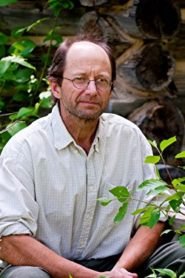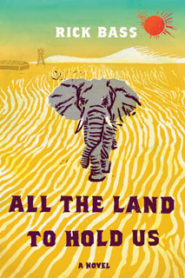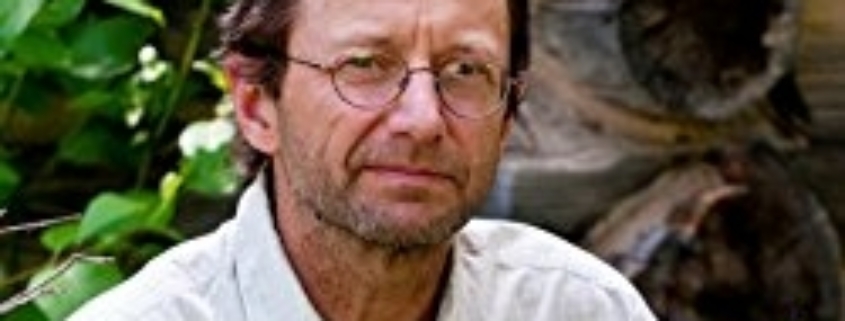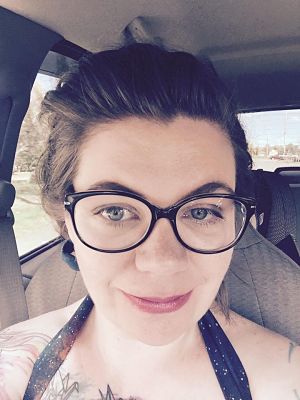Litdish: Rick Bass, Author & Activist

Rick Bass
With a background in geology, Rick Bass splits his time between environmental activism and writing. His work crosses genres and includes non-fiction, essays, novels, and short stories. You can find his work widely published and acclaimed in journals and magazines such as Esquire, The Atlantic, The New Yorker, and many more. He is the author of several books and story collections including Why I Came West, All the Land to Hold Us, and For a Little While. Rick and I are both Montanans. Rick lives in the rural Yaak Valley, and I live in an urban center, so our experiences are vastly different. Still, we both have the unique position of living blue in a red state. I first saw Rick speak in Los Angeles during Antioch University’s June 2017 MFA residency where he talked about the urgency of activism in today’s world.
Interviewed by Kori Kessler via email and edited for clarity.
Kori Kessler: You have a background in geology. How did you get into writing and how does your experience as a geologist shape your writing?
Rick Bass: I learned to write by being sold books from the bookstore in Jackson Mississippi. Where I was working as a geologist at the time. As a geologist, I made maps of unseen buried lands. This was excellent training to become a writer, who does the same thing.
KK: You write in a variety of mediums from creative non-fiction, to short stories, and novels. From a craft perspective, how do you approach each genre? How are they similar and different? Does any one genre flow easier than others for you?
RB: Speaking generally, in fiction I have no idea what the end of the story is or will be, only roughly where it lies. Generally speaking, with non-fiction, I have a bit more vision about what might lie ahead.
KK: What drew you to write about stories that take place in the West, and focus on the landscape and nature in this area at a time when these spaces are in danger of being destroyed?
RB: Beauty.
KK: There is an element of magic that appears in your writing that emphasizes the supernatural power of the landscape—the elephant that shows up in the desert in All the Land to Hold Us for example. How does magical realism inform your writing? How does it relate to environmental writing?
RB: I don’t think of it so much as magical realism. The things I write can happen. There is no relation to environmental writing in this approach.
 KK: How do you go about writing a character outside of your own experience—women like Clarissa and Ruth, or Mufti (characters in All the Land to Hold Us), who is from India, for example?
KK: How do you go about writing a character outside of your own experience—women like Clarissa and Ruth, or Mufti (characters in All the Land to Hold Us), who is from India, for example?
RB: Specificity helps. Specificity provides a reader access to the story and attaches them inextricably to the dream.
KK: During your time at the Antioch University Los Angeles June 2017 MFA residency, you mentioned that we need more people in the street, more activism in addition to poetry. People in the seminar seemed especially bothered by this statement. I think it’s because many in the audience aren’t living as a progressive in a red state—can you describe what it’s like working and writing as an activist and as a progressive in an extremely red state like Montana?
RB: Unless you have done it, it’s probably impossible to try to describe working as an activist in the population I’m in. It’s probably impossible to try to describe working as an activist in a population or demographic that is so violently against your aesthetics, and, often, you. Sometimes, simply raising the flag every day and taking the high road over the years is the best form of activism. One learns to be very mindful of the ineffectiveness of preaching to the choir or standing on the soapbox in such toxic environments.
How does one prevent burnout? The support of peers is vital, as is the practice of remembering the cause itself and your belief in it, and for me, getting out into the woods.
KK: How do you balance life as a writer with life as an activist?
RB: Balance is a dangerous word. It is more a question of shifting priorities; triage… juggling is a better word. You do your best and don’t expect perfection in activism. Just do your best. Don’t leave anything behind or on the field.


 Kori Kessler is obsessed with pop culture. She has a love for misunderstood female characters and murder mysteries. Currently, she attends Antioch University Los Angeles and lives with her family and their three dogs Ginsberg, Elliot, and Stella.
Kori Kessler is obsessed with pop culture. She has a love for misunderstood female characters and murder mysteries. Currently, she attends Antioch University Los Angeles and lives with her family and their three dogs Ginsberg, Elliot, and Stella.


